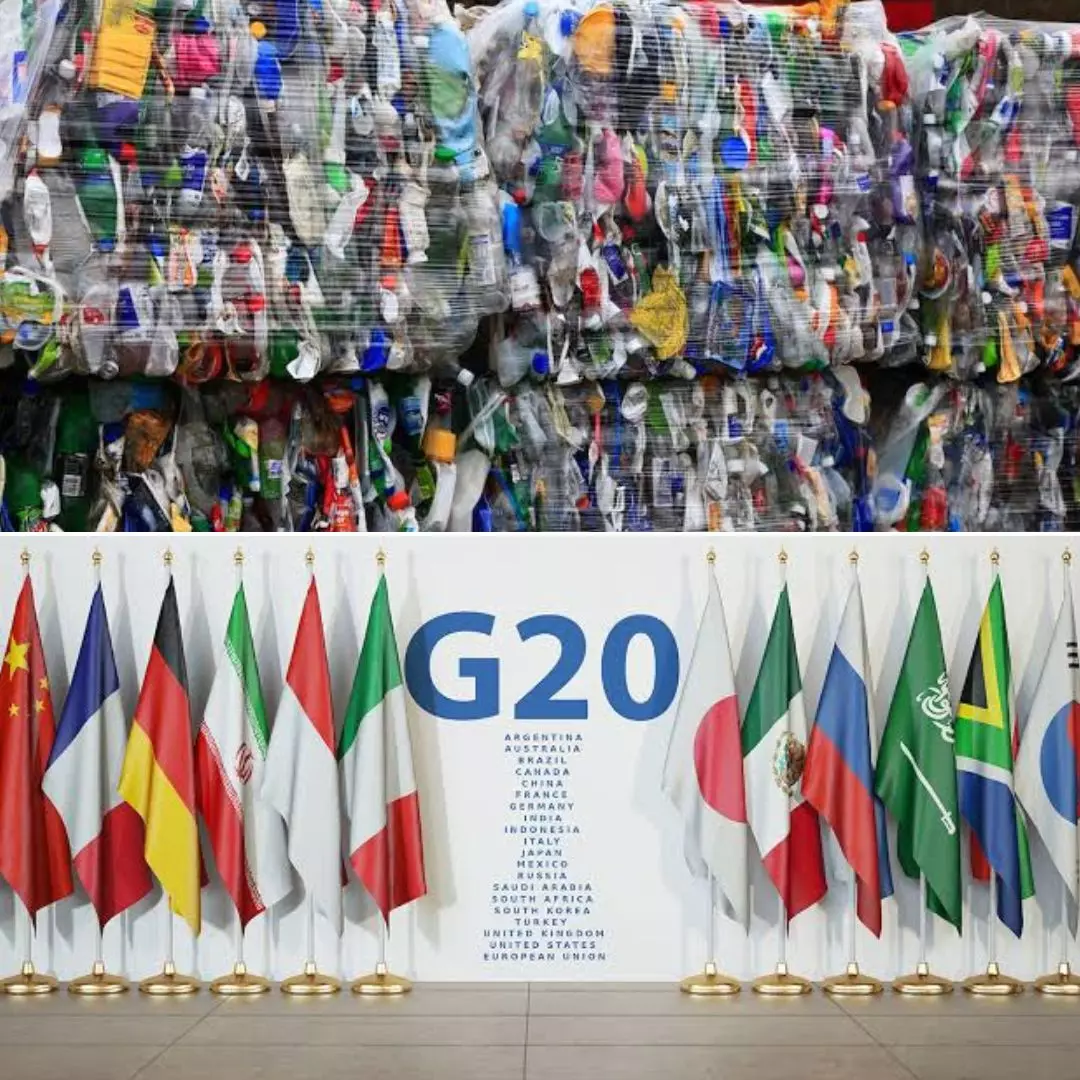The G20 (Group of Twenty), an intergovernmental forum of 19 countries and the European Union (EU), was established to address issues related to the global economy, climate change mitigation, and sustainable development. It is a key determinant in climate action as it comprises most of the world’s largest economies, including both industrialised and developing nations. While promises have been made to tackle climate change collectively, a recent report published by Back to Blue says otherwise. The report suggests that plastic use in G20 countries is expected to double by the middle of the century.
Negotiations: Need Of The Hour
The research study published on February 27 states that the G20 countries are on course to double their plastic contribution by 2050 unless a comprehensive and legally binding global treaty to curb the plastic consumption is implemented. All existing programmes to boost recycling or cut the consumption of single-use plastic only scratch the surface of a larger concern.
In November, the United Nations (UN) kicked off negotiations on an agreement to tackle plastic pollution in Uruguay. This move was aimed at drawing up a legal treaty by the end of next year, and as many as 175 countries had signed up to the talks. However, if such negotiations fail, the annual plastic production in G20 nations is predicted to rise to 451 million tonnes by 2050. This would be up by nearly three-quarters from 2019. Based on this understanding, the research group, run by the Economist Impact think-tank and the Nippon Foundation, called for a more comprehensive climate action globally.
Call For Stricter, Aggressive Regulations
Weighing in the possibilities, the group stated that the treaty negotiations would be “difficult and treacherous” and that the chances of no treaty emerging by the end should be considered. According to a Hindustan Times report, even with the probability of a treaty emerging after the negotiations, it could be too weak to reverse the massive plastic tide. Hence, the researchers saw no other go than an aggressive ban on single-use plastic.
Among the G20 countries yet to introduce national bans on single-use plastic products include Brazil, the United States, Indonesia and Turkey. The researchers also recommended higher production taxes and schemes to make firms responsible for the entire lifespan of their products, including its disposal and recycling. Such combined measures could limit the annual consumption to 325 million tonnes by 2050, an equivalent of about 238 million filled rubbish trucks.
Also Read: Cleaner, Smoke-Free Air! Karnataka Launches App To Curb Smoking In Public Spaces
https://thelogicalindian.com/h-upload/2023/03/01/500x300_230188-untitled-design-28.webp
Environment
2023-03-01 10:44:08.0
Call For Action! Single-Use Plastic To Double By 2050 In G20 Countries, Says study










